|
When I was a naïve overconfident young man Dr. Hugo Norden, professor emeritus Boston Conservatory, coached me in Baroque counterpoint and harmony. He was a wise man who knew how to handle characters like me. Mr. Story we are who we listen to. So, pick carefully" Dr. Hugo Norden 1981 Boston A restatement of the "law of association" to which I’ve spent forty plus years considering. I've reached several conclusions starting with who and what we listen to and how that normalizes our expectations of how music should sound and be presented. These associations show us possibilities. But who we “hang with” will be the greatest influence on our musical progress. Jazz musicians hang with Jazz musicians, Classical musicians hang with Classical musicians and so on. To whom are you listening? Do your listening habits support your music studies or distract? Do you associate with other like-minded individuals such as fellow students, or concert goers? If I can help, call me. David revised August 2022
0 Comments
Here are my thoughts the acquisition of jazz chops.
1. Learn and memorize tunes by ear. Generations of Jazz musicians have taken this route. If playing by ear is difficult, call me for ear training lessons. 2. Join a band and play as much as possible. A young musician asked Art Blakey how he could improve. "Play every night" was his response. 3. Transcribe like crazy. If this is difficult, I teach music theory. 4. Record everything you do. Recording yourself is the best feedback you have between lessons. 5. Learn more tunes. "The musician with the largest repertoire wins". 6. Practice your technique, at various tempos, with a metronome. All great musicians have a deep sense of time. 7. Play Bach, Debussy, and Faure. Jazz piano is notoriously diminishing of our left-hand skills. I practice classical music to maintain my left-hand piano skills. 8. Keep up your lessons. I’ve been taking lessons for over 50 years. 9. Join a second band that plays only original music. Playing original music solidifies the skills and knowledge of composition, theory, history, leadership, notation, and more. 10. Write original music for solo piano. Bonus. Read and explore the history of jazz prior to heading to jazz school. If I can help you call me. David Revised August 2022 What should I practice at the piano?
What to practice is the perennial question? Here are some of the thoughts gleaned from decades of personal practice and observing countless students.
If I can help, call me. David revised August 2022 What is practice math? Kim practices 10 minutes a day and Rachel puts in 60 minutes a day. …and a year goes by.
Now let’s compare experiences. Kim is having the time of his life, he’s learned a few pieces, played in a recital, showed off to his non-playing friends. Rachel is also having the time of her life, she’s learned a few pieces well, played in a recital to great family fanfare, and showed off to her non-playing friends. They are both a success. Everyone is happy, including the piano teacher, because there was clarity of purpose explicitly communicated by parents to the teacher and the child at the commencement of lessons. David
David Revised September 2022 Here are some of the things I’m considering in a post-pandemic world. It may be helpful for your situation too.
Best regards, David Revised October 2022 Sometimes we all need a break. Maintaining the years of focused attention required to master an instrument is overwhelming. I deal with it by occasionally taking a "timeout" to contemplate my goals and to recommit to my project of mastering percussion. I take a "timeout" once or twice a year, but rarely for more than a week. David Revised October 2022
See you in September. David Revised October 2022 Update October 2022: Gary is still at it. He's been playing jazz, in multiple bands, each week now, for years. Go Gary! David Revised October 2022
Revised October 2022 Rankings:
What can I do for you?
In short, I will present the material to you in a logical fashion, according to your specific circumstances, using a variety 21st c. multi-modal techniques and provide you with weekly feedback. Call me. David (Authors note I own more than one hundred drum books, listened to hundreds of hours of drumming podcasts, and subscribed to jazz and drum education subscription services promising great masterclass from my jazz heroes. I live on YouTube. Furthermore, I own too many drum sets, snare drums, cymbals and drumming paraphernalia. So, I understand your plight, frustrations, anxieties, and determination.) Revised October 2022 Will I ever get there? Maybe. An adult student is working on the scherzo of Haydn’s piano sonata in F major Hob.XVI:9 A fun work from RCM level 4. It goes fast, it’s light, it’s fun under the fingers. It reminds me of joyful summer memories as a kid riding our bikes as fast as we can go, just celebrating the joy of movement and being alive. How does one play like that? Can I ever go as fast? Another story. I’ve a young teenage student preparing to sit for her level 8 exam later this month. One of her pieces is Solfeggio in C minor by CPE Bach an extremely fast and demanding piece of music. She runs like the wind through it. The power of youth. Can my 61-year fingers play that fast? Nope. Period. It’s as absurd as looking on while high schoolers compete in the 100-yard dash. Yeah, I can still run fast, but not like that. Moral of the story. Be at peace with it. Now can we learn to play faster. Of course. Can we ever go as fast? Maybe, maybe not.
Now back to Haydn. Pianists who play well, including fast, have worked patiently in the following areas.
If I can help you on your journey, please give me a call. David Time to dream again. Covid-19 will abate this year; the vaccines are coming, spring will arrive. Time to get musically ready to share our music with the world again.
Here are 10 ideas to mull over.
Cheers, David 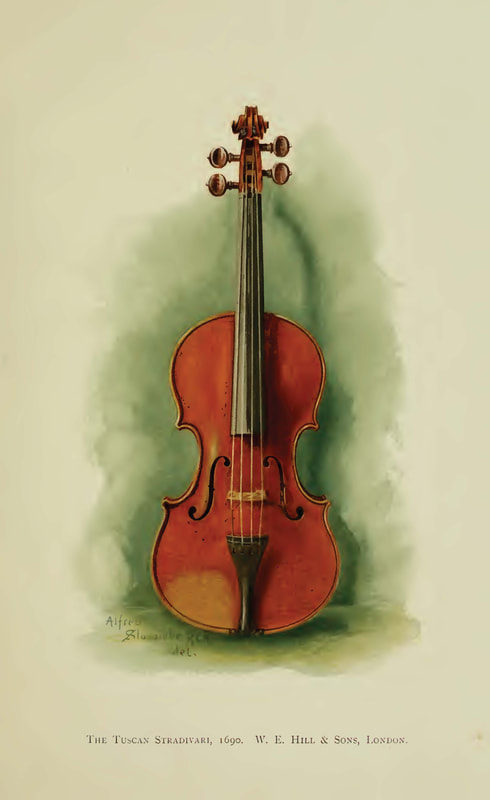 Heather Lotherington 13 December I took up the violin in early summer 2018. I reckoned I would get a running start on a bucket list project. But let’s fast forward a couple of years, past the commitment of buying a violin and a sustained period of caterwauling that inspired the neighbor’s dog to howl, past the perpetual state of terror at lessons, a wretchedly inflamed shoulder, constant and unending frustration, and perpetual tweaking of violin, shoulder rest, chin rest, bow to find a position where this instrument felt even quasi-comfortable. Let’s begin instead a few months into Covid lockdown when I reconnected with my violin teacher and we resumed lessons on Zoom. After brushing up my basic skills, I thought I might sign up for the Royal Conservatory of Music program to provide structure to my learning. We embarked on the preparatory level violin curriculum, and emboldened, I booked an exam date. My available practice time was limited by full time work (on Zoom), which, on some days, wiped me out past even starting the depressing regimen of hit and miss scales. But motivated by a fear of making a total ass of myself in front of an examiner accustomed to 5-year old’s capable of mastering this content, I practiced. I pushed onwards, I stretched, I recorded myself and self-critiqued, I watched superstar violinists on YouTube, and listened attentively, studying how they held their violins and their bows. I practiced with my husband playing the piano or the ukulele, I played to recorded tracks, I sent video-recordings to friends and family. Mostly they were encouraging; a few were incredulous that I would undertake such a project at my age. But why not? A month before the examination my nerves started getting the better of me, so I intensified my practice time on weekends, bearing down on my scales and arpeggios, determined to get my fingers in the right place for each note. A millimetre up or down the string produced disharmony, yet there are no guiding frets on a violin. I practiced as deliberately as I could: open string bowing, scales, arpeggios, get that fourth finger in place ahead of time! My teacher advised me to focus my attention on one piece at a time, but sometimes I drifted off to picking out tunes by ear or playing old favourites from the early days: Mary had a little lamb, Twinkle, twinkle little star... I decided to do a mock exam with my teacher during lesson time. It was humiliating. The week before the exam, my pieces were running on a constant loop in my head. I practiced my fingering while I slept, when I slept, which was seldom and badly. I practiced maniacally. I worked out every kink in continual mock Zoom exams, doubling down on the bits I messed up. Two days before the exam, a curious sense of calm descended. Out of nowhere, I felt that I had learned the elements of preparatory violin, and performance of these basics was up to the vicissitudes of exam performance where, of course, anything can happen. I had memorized my repertoire pieces and, though not necessary, my étude. My scales were on autopilot. I needed to credit myself with accomplishment of this basic learning and damn the torpedoes. I was ready for the exam. The morning of the exam, I ran around in circles preparing: my violin needed to be acclimatized to the humidity of the basement. The piano and the violin had to be tuned exactly in pitch. Was there enough resin on my bow? My husband and I practiced our simultaneous piano and violin start: an audible sniff, and tally ho. I entered the zoom waiting room nervously. We were being recorded though no one was there. And suddenly there she was: my examiner presented a friendly face. I silently thanked the heavens above that I had been spared a hangman. Decades of examining graduate theses and dissertations had taught me that best performance in a tense examination situation was facilitated by an encouraging tone and not by a repeat of the Spanish Inquisition. All the same, my fingers trembled, my sweat glands went into overdrive, and I forgot how to breathe. I did remember to smile and to play with the conviction my teacher had taught me to show. There were to be no faces pulled, indicating disappointment or frustration, and if I made a mistake, I was to make it with pride and immediately move on. I began with my scales, and true to practice, practice, practice, they rolled off just fine. My teacher had told me to sing to my piece called (appropriately), Song: make up words, create a story and tell it in music. She told me to play what I heard in my head not what I produced with my fingers. So, I did. My étude began a little flat but it had spirit. My favourite beautiful slow song scrolled in my head, and I played as if that were me. My fast piece, the last in my program, was intended to be humorous, and it flowed with relief. It was the very final note in the exam that I blew, probably because I knew I was nearly done. I heard the ear test note perfectly but by that time, my flustered fingers just missed the spot. It was almost funny. And the exam was over as suddenly as it had begun. It had taken 7 minutes. In the academic sphere in which I work, I am not a fan of examinations, which create a ceiling as easily as a floor and encourage parroting of known standards rather than innovative thinking. But I was surprised by the excitement I felt taking a preparatory level violin examination. Learning the violin is qualitatively different from the cognitive learning I work with. Playing the violin is deeply embodied, requiring the player to learn precise physical skills to communicate with an instrument. There is no music without mind, body and instrumental medium working in concert. My mark—not yet received—now seems immaterial. I sensed that my performance was a pass for this level of accomplishment, and I could now pursue the next level of play. The basics I so fervently argue against in public education (which has developed over the past 200 years past the horse and buggy era) indexed something else in violin: an ability to perform skills enabling me to proceed to more complex embodied music making. I could now move into level 1 learning. And that is where I am now: learning the D harmonic minor scale and playing 2 octaves of the G major scale. Woohoo! I was the proud accompanist for Heather, my wife.
David 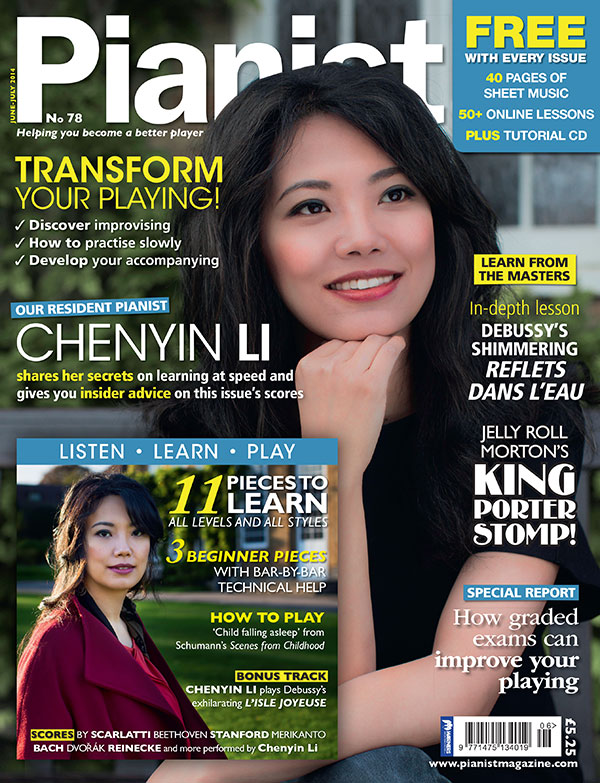 Restarting piano after a 4-decade hiatus? How to get started. The hands will be slow. But they will improve. Patience is the key here. An analogy: You were at 18-year-old track star back in the day. You buy a pair of expensive running shoes, the kind that promise speed, endurance, and youth. First day out, you run 10K. It is glorious, next day you can’t move. Shoes go in the closet; you are back in front of Netflix. Oops, you’ve made a tactical mistake. Try this instead.
Have fun, if I can help, call me. David I'm 15 or so and I've been playing piano for just a year when I got the call from a singer of my acquaintance. She is cute and she needs an accompanist for the outdoor church strawberry social. I accept. (Though I'm way over my head, I'm keen to impress.)
We practice together. Somehow, I survive. However, I am about to learn the difference between the practice room and the stage. (I didn't imagine it is like basic training verses combat.) So, picture this: It's a beautiful day as I approach the piano the church has hauled onto the grass. The back of the piano faces the singer and the audience. I confidently sit down, and immediately my right leg starts to bounce uncontrollably against the underside of the piano. People are looking around for the source of the noise. I remain deadpan behind the piano. She keeps singing. It mercifully ends. Takeaways. 1. "Superbia et ante ruinam" Pride goes before the fall. But the show must go on. 2. Never underestimate the power of shameless audacity in a show business career. 3. The magic of the performing arts is its illusion that it is easy. David Revised June 2023
If I can help you, let's chat. Best, David I had a date for the Grade 10 exam, a few months out. Whoa! Piano thoughts dominated my waking hours for the next 90 days.
First thing I learned? Thinking about piano is a form of practice. In my mind I saw myself performing the music. My mind sought solutions to tricky parts I saw coming in the music. I was excited. Second thing I learned? A firm date quickly eliminated procrastination. Third thing? This was really exciting. As Los Angeles Clippers’ Doc Rivers said, "pressure is a privilege". This was real, this was difficult, but this was doable with focused effort and lots of practice. Fourth thing? I started to listen in earnest to both professional recordings of my program and myself. Record, play, listen became my method. I'd learned how to practice. I nailed it and won a scholarship for the highest mark in my district. David Students often believe that I must have started early in life with lots of natural talent. Let me clear this up.
I am proof practice works.
I made it into Berklee with 4 years of piano under my belt, but it included 2 years of professional gigging in rock and country bands in the North Bay region. A lot of gigs. Plus, my basement jazz band. That made the difference I figure. But who knows, recordings do not exist. I got through Berklee as a composition major. I thought about being a performance major, but that required serious practice. Something I was not interested in. But I continued playing gigs during those years. A lot of gigs. Some exciting gigs. I was a busy journeyman. I could sight-read just about anything. I showed up on time ready to play. I was pleasant to be around. Where did that put me in the Berklee pecking order? Turns out near the top. I made it one year to the number 2 band. So, when did I learn to practice? Age 42! Signed up for my Grade 10 exam. My very first piano exam ever. I couldn't fake it. I had to play it. I put a couple of thousand hours of focused practice in. I read every book I could find on how to practice. How many books? Chapters bookstore sent me Christmas present. That is how many.
David Learning Plans
A learning plan is a document (possibly an interactive or on-line document) that is used to plan learning, usually over an extended period of time. Any entity can have a learning plan. They are often used by individuals to plan and manage their own learning, but they can also be used by teams, communities of practice or organizations. Learning Plan - Wikipedia, the free encyclopedia en.wikipedia.org/wiki/Learning Plan What might you learning plan look like? Clarity and specificity are important. Classical student Goal: Sit for my Grade 4 exam in June 2021 Plan:
Goal: Be able to jam in a community group in one year. Plan:
How much effort will it take? Depends on:
What result are you looking for? Extraordinary results take extraordinary effort. Levels 1-3 plan on 30-45 minutes a day, more near exam time. Levels 4-6 45 minutes plus Levels 7-8 60 minutes Levels 9 -10 90 minutes plus It's like preparing for the Boston Marathon. This is on the piano bench. Add more time for theory and guided listening. How big is your or your child's desire? Realistically it should be high. A healthy mix of intrinsic and extrinsic motivation is needed. What piano skills are you bringing to the project? Please let me assess your skills before you make decisions. Sometimes transfer students, new to my studio, ask me to help them prepare for exams way above their current skill level. I may recommend some preparation to preserve your enthusiasm and my sanity. Have you done this before? Then you know what is in store. If this is a new adventure, let's talk. Here is my personal experience. I completed levels 10 and then the ARCT from age 43 through 47. It was by far the most exciting thing I've ever done at the piano. Remember, I had 25 years of professional experience behind me in commercial and jazz performance. I didn't play classical music or take exams as a child; I went straight to the band stand as a teenager. Classical piano was new to me as a formal study, though I had a love of the music, went to concerts etc. It was also the most time-consuming activity of my adult life. About 5000 hours over a four-year stretch. The results earned me national, provincial, and local scholarships. That was a surprise. Completing Berklee College of Music as a young man was easier in comparison. I had no idea an ARCT took so much. Would I do it again? In a heartbeat. Do I recommend the experience? Yes, it truly is a peak experience. I felt like superman for years afterwards. Are your practice skills Up-to-date for 2020? We do not grind anymore. Ask me, I help you get organised for success. Recommended books: David
Have Fun, see you in September. David I've made mine. There are below.
Time for yours. Here are some ideas to get you started. 1. Have fun, lower the intensity. Except if you are a professional or preparing for post secondary music education. Time to ramp it up! 2. Now back to recreational players. Normally I would recommend some concert attendance, but alas, this is not currently possible. Maybe attend some online live events. The Village Vanguard in NYC is presenting some of New York's finest. 3. If you can visit a music store with a large print section and ask the clerk for some recommendations on what is new and exciting for players at your level. 4. Revisit and reflect on your goals for the fall. Best, David Story My plans. As I'm a professional, I'm ramping up the intensity until Labour Day in September. 90-day summer music plan 2020 Piano Coaching
If I can help you, please call and reserve a future spot. I am now taking reservations of summer 2020 and fall 2020. David “How good do you want to be?” Start with this question followed with: “how should I spend my time?”
Success will depend on the depth and breathe of your practice. My most successful students have made peace with time and possibility. Yes, time counts, but patience and realistic expectations count for more. Learning has piano follows a well trodden path. You just must follow it to succeed. There is no secret. Just time and hard work. We must be realistic with the fact that course correction will be needed regularly. Life is messy. So:
Call me, I can help. David I've got happy students who practice more than an hour a day, others who practice an hour a week. Because their time matches their realistic expectations, they are happy. Could they all practice more? Of course. I could too. |
You've got to learn your instrument. Then, you practice, practice, practice. And then, when you finally get up there on the bandstand, forget all that and just wail. AuthorI'm a professional pianist and music educator in West Toronto Ontario. I'm also a devoted percussionist and drum teacher. Categories
All
|
||||||||
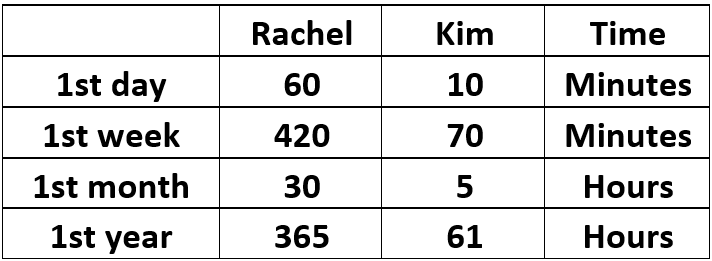
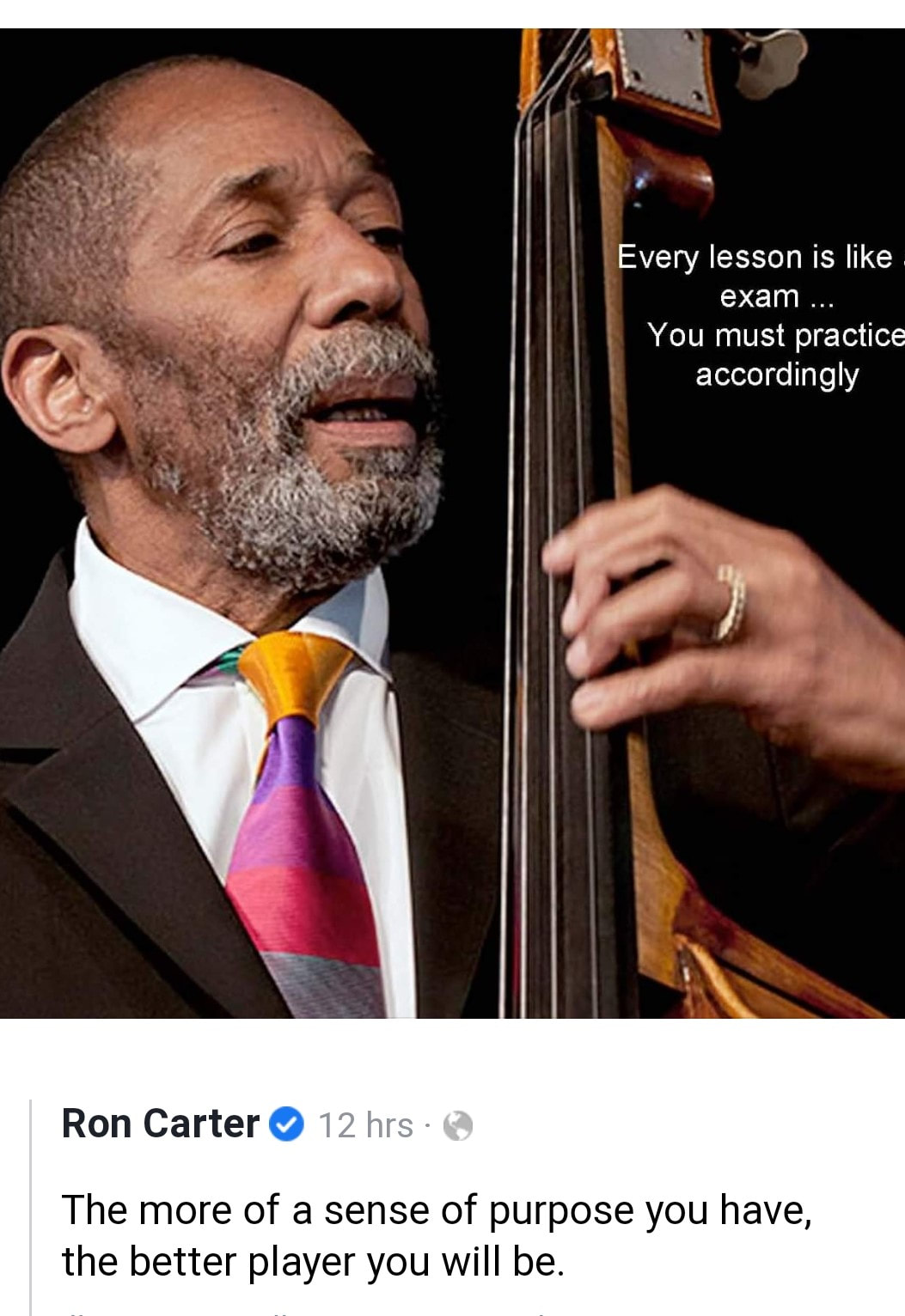
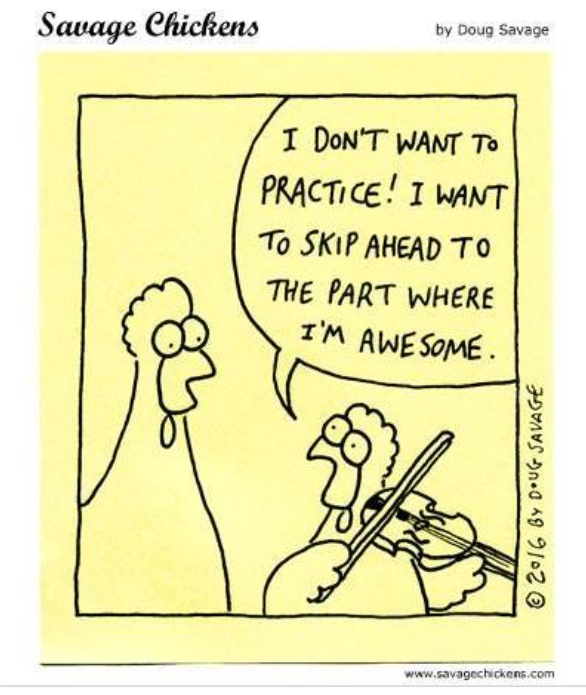
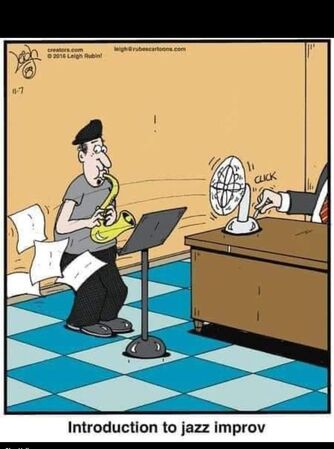
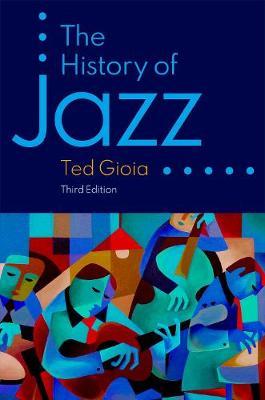
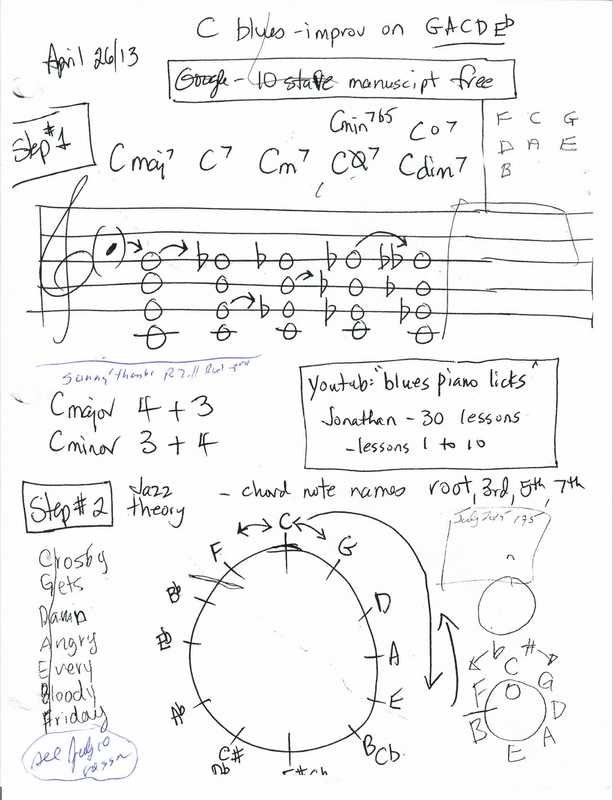
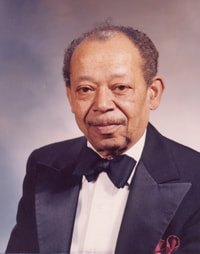
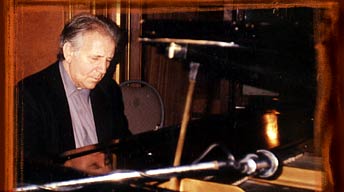
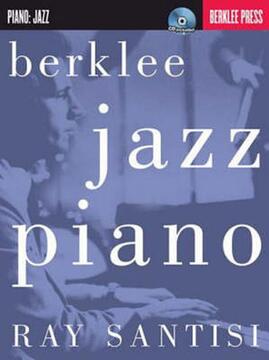
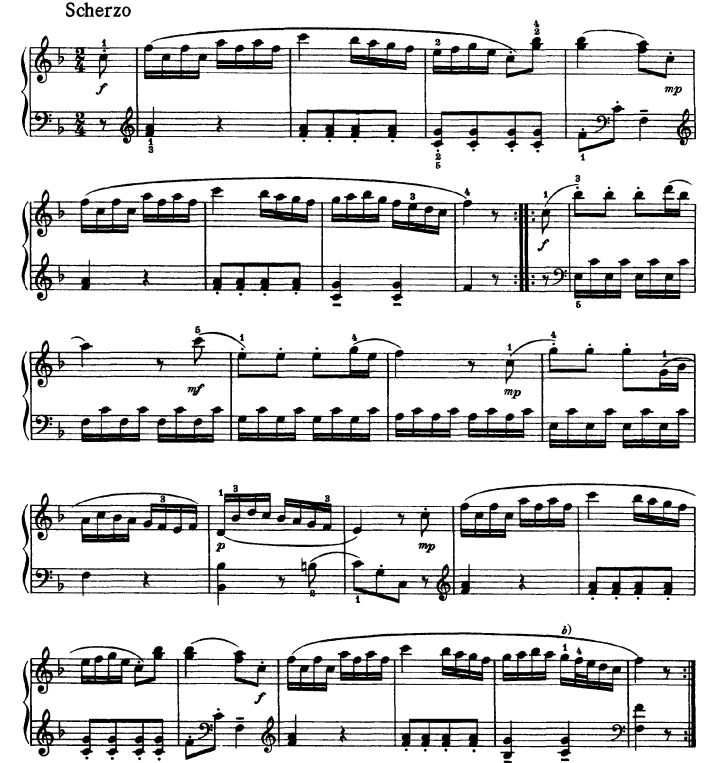
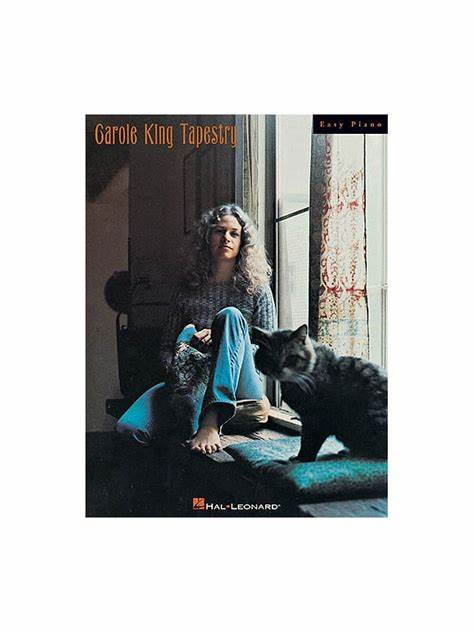
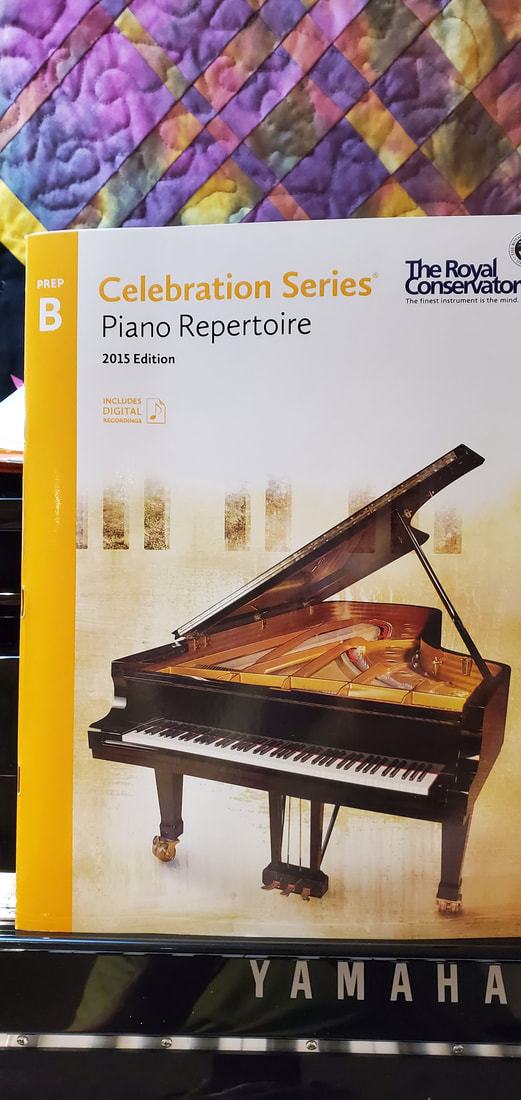
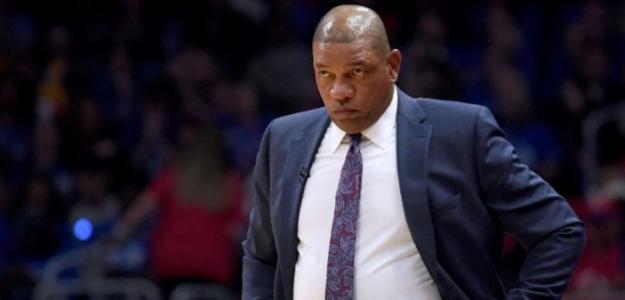
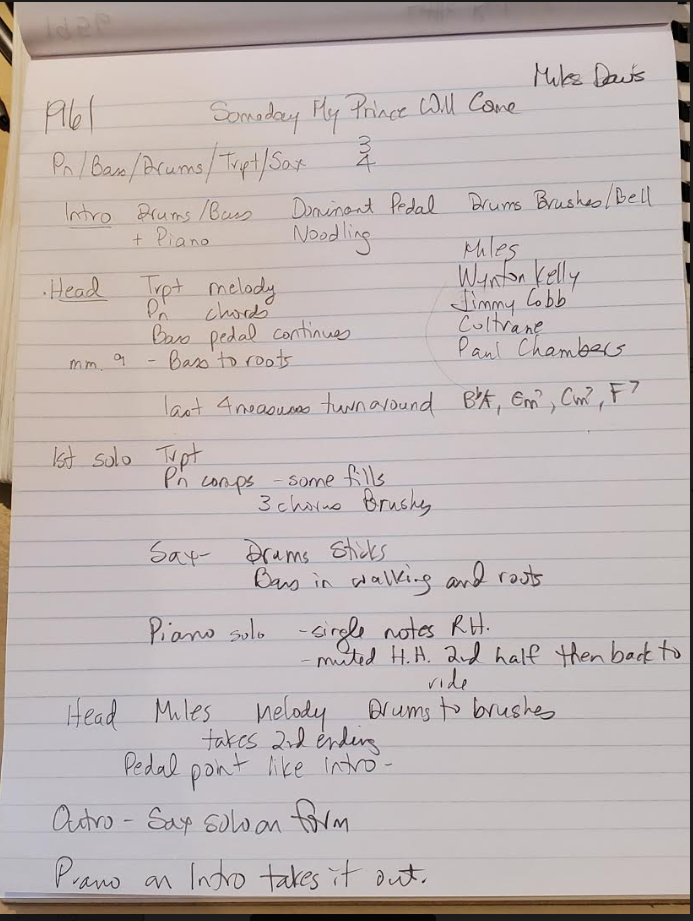
 RSS Feed
RSS Feed